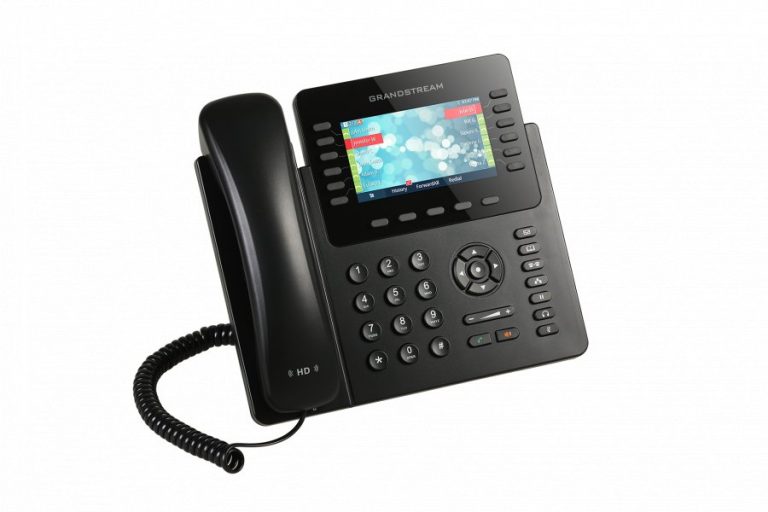Are you overlooking the hidden power of selecting the perfect business accountant to secure your financial future? This guide unveils why the right financial partner transcends basic bookkeeping—helping you understand crucial concepts like assets, liabilities, and cash flow—turning complex numbers into strategic tools. Discover how sector-specific expertise, communication style, and transparent pricing shape a trusted partnership capable of navigating growth and challenges. But finding that ideal fit is only the beginning; building a resilient relationship through regular, honest communication amplifies your business’s stability and potential. As expenses and risks loom, understanding how to manage contingencies and safeguard sensitive data becomes vital. Are you prepared to invest in a strategic alliance that not only ensures compliance but also unlocks new opportunities? This journey reveals how the right accountant can transform your financial management from a mundane task into a catalyst for sustainable success, urging you to consider whether you’re truly maximizing this critical alignment.
Unlock the Power of Business Accounting for Confident Growth
Understanding business accounting is essential for running a successful company. It’s more than just tracking expenses and income; it’s the backbone of making smart decisions, managing cash flow, and staying on top of tax laws. Good accounting means recording every financial transaction precisely and then analyzing that data to get a clear view of your business’s health. Whether you’re setting budgets or preparing for tax season, a solid grasp of these basics helps you navigate your financial landscape with confidence.
Core concepts like assets, liabilities, revenue, and expenses form the foundation of effective financial management. Assets are what your business owns—such as equipment or inventory—while liabilities are what you owe, like loans or unpaid bills. Revenue shows the money coming in from sales, and expenses cover what it costs to keep your business running. Double-entry bookkeeping, where every transaction impacts at least two accounts, keeps your records balanced and reliable, making it easier to spot issues early.
Accounting has evolved dramatically over the centuries, from handwritten ledgers to sophisticated digital platforms. Today’s cloud-based tools provide real-time insights, automation, and advanced analytics, making financial management faster and more accurate than ever. Familiarity with these technologies allows you and your accountant to leverage the latest resources, giving your business a competitive edge and supporting smarter growth strategies.
Clear communication with your accountant is key. When you understand what assets, cash flow, and other key terms mean, you can better interpret financial reports and make informed decisions. This shared language turns complex numbers into actionable insights, empowering you to steer your business confidently through growth and challenges. As your company expands, a strong foundation in accounting principles prepares you for more complex financial situations.
Learning these fundamentals isn’t just for accountants—it’s a vital skill for all business owners. It helps you stay in control, anticipate challenges, and seize opportunities. When you understand how your financial system works, you turn numbers into tools for growth, creating a solid base for long-term success. This knowledge not only keeps your business on track but also empowers you to make strategic choices that drive future success.
Master the Essentials of Financial Management to Drive Success
Understanding business accounting goes beyond simply tracking expenses and income; it’s the foundation of effective financial management. Accurate recording of every transaction provides the raw data needed to make informed decisions, plan for growth, and comply with tax regulations. When your books are clear and organized, you gain a real-time view of your business’s financial health, helping you anticipate cash flow needs and avoid surprises.
Core concepts like assets, liabilities, revenue, and expenses are essential building blocks. Assets include everything your business owns—such as equipment or inventory—while liabilities are what you owe, like loans or unpaid bills. Revenue reflects the income generated from sales, and expenses cover your operational costs. Using double-entry bookkeeping ensures each transaction impacts at least two accounts, keeping your records balanced and trustworthy.
The evolution of accounting, from handwritten ledgers to cloud-based platforms, has transformed how businesses manage their finances. Today’s digital tools offer automation, real-time updates, and powerful analytics, making financial oversight faster and more accurate. Embracing these technologies allows you and your accountant to work more efficiently, unlocking deeper insights that support strategic growth.
Having a shared understanding of key terms improves communication with your accountant. When you know what cash flow, assets, and liabilities mean, you can interpret financial reports more effectively. This clarity turns complex data into actionable insights, empowering you to steer your business confidently through opportunities and challenges.
These foundational principles serve every business owner, not just accountants. They enable you to control your finances, identify opportunities, and avoid pitfalls. As your company grows, a solid grasp of these concepts prepares you for increasingly complex financial decisions, giving you the tools to build a resilient, thriving business.
Find Your Perfect Accountant to Elevate Your Business
Finding the right business accountant isn’t just about their title or years in the field—it’s about matching their skills and experience to your specific needs. Look for someone with relevant industry experience, whether you run a tech startup, a retail shop, or a service business. An accountant familiar with your sector’s unique financial challenges can provide insights that others might miss. Certifications like CPA or other recognized credentials signal a high level of expertise and ongoing professional development, giving you confidence in their abilities.
Equally important is their communication style. An accountant who can translate complex financial concepts into clear, straightforward advice saves you time and prevents frustration. They should listen carefully to your goals and concerns, offering insights rather than just reacting to requests. When advice is approachable and easy to understand, it builds trust and makes collaboration smoother, especially as your business grows and your needs become more complex.
Experience in your specific business type adds significant value. For instance, a retail-focused accountant will understand inventory management and sales taxes better than someone without that background. This sector-specific knowledge helps tailor advice to your situation, whether it’s optimizing tax strategies or managing cash flow during seasonal fluctuations. Finding someone who genuinely understands your industry’s nuances makes a real difference.
Pricing is another key factor. Some accountants charge flat fees, others bill hourly, and some work on retainer. Clarify what’s included in their pricing and whether additional services—like consulting or audits—are extra. A higher fee often reflects a more comprehensive service offering, which can save you money in the long run by avoiding costly mistakes.
Don’t forget to check references or ask for testimonials. Speaking with other clients about responsiveness and reliability reveals how dependable an accountant truly is. Do they meet deadlines? Are their explanations transparent? These insights help ensure you’re choosing a partner who will be there when you need them most.
Building a relationship with your accountant should be rooted in trust and mutual understanding. Seek someone who listens, communicates clearly, and demonstrates genuine interest in your business. This partnership becomes a strategic asset, not just a service provider.
Finally, prioritize compatibility. An accountant who shares your values and understands your vision will be more invested in your success. Finding this fit requires time and careful consideration, but it’s worth the effort. The right accountant can transform your financial management from a necessary chore into a powerful tool for growth and stability.
By investing time in selecting the right accountant, you lay the foundation for a productive partnership that can adapt as your business evolves. When you’re ready to find professionals who truly understand your industry and financial goals, exploring options like industry-specific accountants can make a significant difference in achieving long-term success.
Build a Partnership That Lasts: Strengthen Your Relationship with Your Accountant
Building a strong working relationship with your accountant starts with establishing trust and open communication. Setting clear expectations from the beginning creates a foundation that makes collaboration smoother and more productive. Regular check-ins—whether monthly or quarterly—are key to staying aligned, reviewing financial reports, and addressing questions before issues escalate. Consistent updates help you catch problems early and keep your financial health on track.
Choose communication methods that suit your style, whether email, phone calls, or video meetings. When your accountant explains complex concepts in plain language, it saves time and reduces confusion. Being transparent about your goals and challenges encourages a two-way dialogue, fostering confidence and trust. When both sides are honest and proactive, your relationship deepens into a genuine partnership, rather than just a transactional service.
Organized, accurate documentation makes collaboration easier. Providing receipts, bank statements, and invoices promptly allows your accountant to do their job efficiently. Sharing your business objectives and concerns helps them tailor advice specifically to your needs. When you’re open and responsive, the accountant becomes more than a number cruncher—they become a strategic partner invested in your growth.
As your relationship matures, continue to keep communication honest and ongoing. Address discrepancies immediately and ask questions to clarify any uncertainties. This openness prevents misunderstandings and builds mutual respect. Over time, this collaborative approach transforms your accountant into a trusted advisor who anticipates your needs and helps you navigate financial challenges confidently.
Maintaining this partnership requires ongoing effort. Recognize and appreciate their expertise, provide timely information, and stay engaged in the process. When you nurture trust and keep the lines of communication open, your accountant can better support your business’s stability and long-term success. Together, you’ll create a resilient financial foundation that adapts and grows with your business.
Strategic Financial Planning: Budgeting and Costs for Long-Term Prosperity
Hiring an accountant is a strategic investment, but understanding the costs involved helps you plan effectively. Small businesses typically spend between $1,000 and $5,000 annually on basic services like bookkeeping, tax preparation, and financial reporting. If you need more advanced support—such as cash flow management or strategic tax planning—fees can range from $100 to $400 per hour or a retainer of $500 to $2,000 monthly. Comparing these structures ensures you find a solution that balances affordability with quality.
Clarifying what’s included in their fees prevents surprises down the line. Some accountants offer flat rates for specific tasks, while others bill hourly, which can make expenses unpredictable if your needs evolve. Asking upfront about additional services—like audits or consulting—helps you budget accurately and avoid unexpected costs. Transparency in pricing builds trust and ensures both sides are aligned on expectations.
Your financial planning should also account for related expenses, such as accounting software subscriptions or specialized financial tools. Setting aside a dedicated budget each month or quarter for these costs keeps your finances organized and prevents last-minute cash flow issues. Regular review of your expenses allows you to adjust your support as your business grows and your needs shift.
Funding options can ease the financial burden. Some regions offer grants, low-interest loans, or tax incentives designed to help small businesses access professional financial services more affordably. Leveraging these programs can give you high-quality support without stretching your resources thin.
Looking at your accountant as a long-term partner enhances the value of your investment. The right professional can uncover tax savings, improve cash flow, and help you avoid costly mistakes—all of which justify their fees. Finding the right balance between cost and expertise ensures your financial partnership supports sustainable growth.
Budgeting for an accountant isn’t just about expense management; it’s about investing in stability and future success. Proper planning enables smarter decisions, reduces risks, and positions your business for expansion. When you allocate resources wisely, you’re better equipped to navigate financial challenges confidently.
Having a clear financial support system in place adds resilience to your business. The right accountant provides not only compliance and bookkeeping but also strategic advice that can propel you forward. Viewing this expense as an investment in your growth transforms it from a cost into a powerful tool for long-term success.
Implement Success: Steps to Onboard and Collaborate with Your Accountant Effectively
To onboard your accountant effectively, start with a clear initial meeting where you outline your business goals, current financial systems, and expectations. Come prepared with organized documents such as recent financial statements, bank records, and invoices to help them get up to speed quickly. Clarify how often you want updates—whether monthly or quarterly—and which communication channels work best, like email, phone, or video calls. Setting these expectations early ensures a smooth collaboration from the start.
Next, define roles and responsibilities clearly. Make sure both of you understand what tasks they’ll handle, such as monthly reporting, tax filings, or financial analysis, and what deliverables are expected. Establishing a shared timeline for key activities like tax deadlines and financial reviews keeps everyone aligned. This reduces confusion and ensures proactive management rather than reactive fixes.
Creating a routine for regular check-ins is essential. Schedule monthly or quarterly meetings to review financial reports, discuss concerns, and adjust strategies. Consistent communication helps catch issues early, saving time and preventing costly mistakes. Using shared folders or project management tools can streamline document exchange and keep everything organized, making collaboration more efficient.
Providing your accountant with accurate, well-organized documentation—receipts, bank statements, invoices—saves time and improves the quality of their work. Be transparent about your business goals and challenges; this openness allows them to tailor advice specifically to your needs. When both sides are proactive and communicative, trust deepens, transforming your relationship into a strategic partnership.
Maintain ongoing dialogue by encouraging questions and addressing uncertainties promptly. If discrepancies arise, tackling them immediately prevents bigger problems down the line. This continuous exchange fosters mutual respect and ensures your accountant remains a trusted advisor invested in your growth.
Finally, nurture the relationship by recognizing their expertise and providing timely feedback. Staying engaged and responsive makes your accountant more effective, helping you adapt to changing circumstances. Over time, this collaborative effort builds a resilient, growth-oriented partnership that supports your business’s long-term success.
Be Prepared: Managing Risks and Contingencies for a Secure Financial Future
Working with an accountant involves some risks, so being prepared helps you navigate potential setbacks smoothly. Clear communication from the start is key to avoiding misunderstandings about services, deadlines, or expectations. Confirm credentials and references before hiring to ensure you’re working with someone qualified and trustworthy, reducing the chance of errors or non-compliance.
Regularly reviewing financial reports is essential. Catching discrepancies early prevents small issues from snowballing into costly mistakes. Keep an open dialogue with your accountant—address questions or concerns promptly. Immediate action safeguards your business from financial missteps that could impact growth or compliance.
Data security is critical. Sharing sensitive information through insecure channels or neglecting confidentiality can expose your business to fraud or theft. Always use secure methods for exchanging documents and verify your accountant follows strict data protection standards. This reduces the risk of breaches that could compromise your financial integrity.
Have contingency plans ready. If your accountant underperforms or if disagreements arise, knowing when to switch professionals or seek external advice keeps your operations on track. Maintaining a list of qualified backup options and documenting interactions ensures you can respond quickly without disrupting your financial flow.
Trust your instincts. Delayed responses, vague explanations, or unprofessional behavior should raise red flags. Address concerns immediately or explore other options. Staying vigilant helps protect your business’s financial health and ensures your partnership remains dependable.
Recognizing potential pitfalls early allows you to implement safeguards. Regular check-ins and transparent communication are your best tools for minimizing risks. This proactive approach not only shields your finances but also fosters a relationship where your accountant can serve as a true strategic partner.
By preparing for common challenges, you create a resilient foundation that supports steady growth. When issues are addressed head-on, your accountant can focus on providing valuable insights instead of firefighting problems. This proactive stance keeps your business stable and positions you for long-term success.


